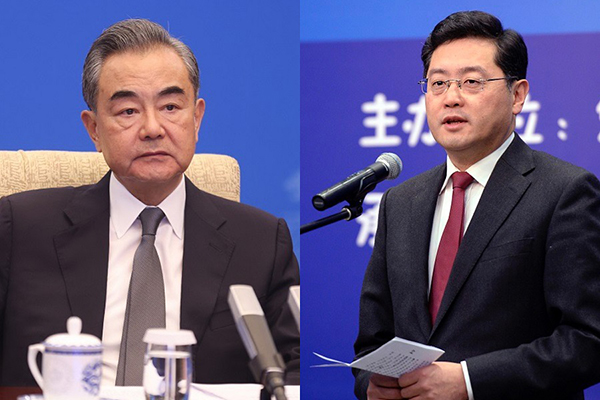It has been official that Qin Gang has been removed of his position as Foreign Minister of China. The new Foreign Minister is Wang Yi.
Amid an atmosphere of interest and curiosity surrounding the absence of Qin Gang, esteemed Foreign Minister of China, the government has recently made a notable announcement. Qin’s departure from his position has garnered attention within the country and presents a unique challenge for President Xi Jinping during his third term. However, the situation has now been resolved with the introduction of Wang Yi as the new foreign minister, who has admirably assumed temporary responsibilities during this transitional period. This diplomatic succession marks an important milestone in China’s commitment to maintaining stability and continuity in its foreign affairs.
Wang Yi Assumes the Mantle of Foreign Minister
The announcement of Qin Gang’s removal from office was made in a short statement released by China Central Television (CCTV). As per the statement, Wang Yi, who holds a higher position than Qin and is the top foreign policy aide to President Xi, has been appointed as the new foreign minister. Wang has been deputizing for Qin in recent weeks and has been actively participating in various diplomatic activities, such as the Brics summit in South Africa and meetings with former US secretaries of state.
Decision Made at a Special Session of the National People’s Congress
The decision to remove Qin Gang from his position was taken during a special session of the National People’s Congress Standing Committee, which convened just one day after the Politburo, China’s top decision-making body, met. The NPC Standing Committee usually holds sessions near the end of even-numbered months, but it can convene an interim session for special cases, as was done in this situation.
China’s foreign ministry and the government have exercised discretion regarding the circumstances surrounding Qin Gang’s absence and subsequent departure from his position. While speculation has arisen in the absence of an official explanation, it has also provided an opportunity for constructive discussions within the country. President Xi Jinping has been attentive to the situation, mindful of public interests, and has sought to address concerns with a thoughtful approach. As the government proceeds with due diligence, the focus remains on fostering transparency and maintaining the trust of the public.
With Qin Gang’s removal, the focus now shifts to Wang Yi, who is no stranger to the role of foreign minister. Serving in the same capacity during President Xi’s first and second terms, Wang brings experience and familiarity to the position. As the director of the Office of the Central Foreign Affairs Commission, he has been intricately involved in shaping China’s foreign policy, making him a natural choice to assume the ministerial role.
While Qin’s abrupt removal has undoubtedly raised eyebrows, it is essential to note that this action aligns with the Organic Law of the National People’s Congress, which grants the Standing Committee the authority to appoint or remove certain members of the State Council. The decision was made within the confines of legal procedure, ensuring a smooth transition of power.
As the Chinese government navigates this delicate situation, the international community will closely watch the actions of the newly appointed foreign minister, Wang Yi. With China’s foreign policy playing a significant role on the global stage, any changes in the ministry’s leadership could have far-reaching implications.
















